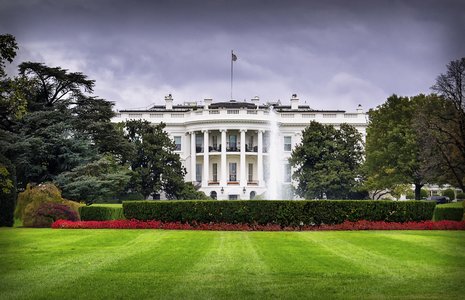In the wake of bearish economic indicators, the panelists discussed President Donald Trump’s trade war with China, unrest in Hong Kong, and the implications of a potentially weakening economy on the 2020 presidential race. The panel then turned to the president's call on Israel this week to block a visit by two minority female lawmakers, saying it would show "great weakness."
Full Episode: Stock market tumbles, President Donald Trump vs. the 'squad'
Aug. 16, 2019 AT 8:37 p.m. EDT
TRANSCRIPT
Notice: Transcripts are machine and human generated and lightly edited for accuracy. They may contain errors.
ROBERT COSTA: Political and economic warfare. I’m Robert Costa. Welcome to Washington Week.
PRESIDENT DONALD TRUMP: (From video.) You have no choice but to vote for me because your 401(k)s down the tubes, everything’s going to be down the tubes. Whether you love me or hate me, you got to vote for me.
MR. COSTA: After months of growth the stock market is rattled, but the president sticks with his trade war.
PRESIDENT DONALD TRUMP: (From video.) China, how ya doing? They’re not too happy. They’re not too happy. They’re losing millions of jobs, the tariffs are working, and they’re eating the tariffs by the way. There’s no price increase.
MR. COSTA: Are there tensions inside the administration? And the president once again clashes with minority women in Congress, this time on Israel, next.
ANNOUNCER: This is Washington Week. Once again, from Washington, moderator Robert Costa.
MR. COSTA: This week’s gyrations in the stock market have not changed President Trump’s hardline on trade, but he did make adjustments as he seeks a deal with China, delaying tariffs on some goods until December. And ahead of a rally on Thursday, he remained upbeat.
PRESIDENT DONALD TRUMP: (From video.) Walmart announced, others announced. We had some tremendous numbers come out today, which I’m sure you saw, so we’re very happy about that. We’re doing very well. The economy is incredible. The consumer – probably above all else the consumer is doing incredibly.
MR. COSTA: But the week’s losses have investors and business leaders concerned amid global uncertainty and signs of slowing growth.
Joining me tonight, Elisabeth Bumiller, Washington bureau chief for The New York Times; Jerry Seib, executive Washington editor for The Wall Street Journal; Toluse Olorunnipa, White House reporter for The Washington Post; and Andrea Mitchell, chief foreign affairs correspondent for NBC News.
Jerry, President Trump has put the economy front and center of his 2020 reelection campaign. With all of the economic and trade news this week, how has the outlook for 2020 changed?
GERALD SEIB: Well, this is the week in which people started to talk seriously about will there be a recession in 2020, and that’s obviously terrible news for any presidential candidate. You know, it’s hard to predict recessions. People say the economists have picked eight of the last five – have predicted eight of the last five recessions. You know, it’s hard to know and it’s early. But the president keeps saying, as he just did, our economy’s doing great, other countries are not – are not having the same kind of success, and that’s true. But it also points to the problem here, that this is a globalized economy, and if the U.S. is doing great but others aren’t the U.S. eventually gets dragged down. And the president can be happy now that the Chinese are having trouble, and they are, but eventually in a globalized economy China’s problem becomes our problem.
ANDREA MITCHELL: And he doesn’t seem to understand what trade deficits are. He doesn’t understand, at least until a hint this week when he talked about protecting Christmas shoppers, that it’s actually Americans who pay his tariffs. And he doesn’t understand that if Germany stops buying American goods, that hurts us. So he seems to take pleasure in everybody else’s economic woes, not understanding the globalization of all of this and how much it affects him. And I also don’t think that he is surrounded by good, smart people on the economy. He’s got conflicting advice on trade, friction among his advisors. And unlike previous presidents, he doesn’t have a good senior staff or top advisors – Council of Economic Advisers, Kevin Hassett has gone. He doesn’t have real economists advising him.
MR. COSTA: Candid analysis from Andrea. You’ve been on the ground with the president as a pool reporter this week in New Jersey at his golf club. To Andrea’s point, what are the tensions inside of the White House on how to proceed on the economy, on trade?
TOLUSE OLORUNNIPA: Well, we did see the president pull back from some tariffs that were about to go into effect September 1st. He pushed that back until December. At the same time he was saying that tariffs were not having an effect, but he said we’re going to push this back by several months because we’re worried about the Christmas season. So he is hearing different voices, as Andrea said, people who are telling him maybe you should push this back, maybe pull back from this fight, think about the politics, think about your own political fortunes here, maybe push this back until after the elections. But he’s also hearing other voices who are saying it’s time to take the hard line against China, the economy here is good, let’s push for as much as we can get in a deal with China.
MR. COSTA: Who is in his ear, Peter Navarro, the trade advisor, the hardliner on China? Is it Larry Kudlow, the former CNBC economist and commentator? Who’s shaping policy?
MR. OLORUNNIPA: It’s all of the above. Unfortunately, it sort of depends on who’s the last person to speak to the president. And some days it is Peter Navarro, who’s pushing that hard line saying we need to take on China now and have this grand battle between the U.S. and China, this ultimate fight between the two powers. But then you have other people like Larry Kudlow, like Steve Mnuchin, who are saying let’s try to strike a deal, let’s try to think about the political fortunes of this president and don’t have there be a recession right going into 2020. And it really depends. That’s why we’ve seen this frenetic approach from the president, because one day he’s listening to Navarro, the next day he’s listening to Mnuchin or others who are more moderate on it.
ELISABETH BUMILLER: And so much of this is driven by – Trump’s chaotic governing style is driving so much uncertainty and anxiety in the markets, and that’s really bad for investors. The other thing is that he’s heading into 2020 and we’re hearing, despite his very positive comments, that there’s a lot of concern at the White House behind the scenes about what this economy’s going to look like in September/October 2020. And Trump has kind of run out of things to do. He’s run out of tools in his toolkit. The tax stimulate – the tax cut, you know, has kind of run its course. The trade war with China is having – is having a bad effect on the economy. And you know, so now he’s just – he’s bludgeoning the Fed constantly to try and lower interest rates, and that’s kind of what he’s got left. But a lot of economists think that just lowering the interest rate a quarter of a point is not going to have that profound effect on the economy.
MR. SEIB: This is a good point because, you know, the economy is as stimulated as it can be. We’re running a trillion-dollar-a-year deficit – that’s a huge stimulus package right there – and you have low interest rates, and you still have the effects of the tax cut. There’s not much more stimulation you can do. But you know, the problem here is not the U.S. economy. The reason the markets went crazy this week was because China put out a whole slew of data that showed the economy there is slowing, and Germany actually reported that its economy shrank a little bit in the second quarter of this year. So this is a global problem, not an American problem. But as I said, it washes onto our shores very quickly.
MR. COSTA: The global slowdown, an important point. What does your reporting reveal about that?
MS. MITCHELL: Well, the global slowdown is clearly, you know, the effect of a lot of things that have been building up and also this trade rhetoric and the tariffs from the president. Going against Canada, going against Mexico, he got what he wanted there in this new deal which hasn’t been ratified yet. But the fact is that he does not see the interconnections. And also, to bludgeon the Fed when, as Jerry points out, there’s – they don’t have a toolkit either anymore, really, given how historically low interest rates are. More stimulus right now would not really help, but the president doesn’t seem to understand that.
MR. COSTA: Does the White House –
MS. BUMILLER: I mean, a lot of economists say that being tough on China is not a bad thing, that the Chinese do deserve some toughness, but the president has gone about it in a very peculiar way. Rather than, you know, marshalling out allies – Japan, South Korea, the Europeans – to build up a case against China, he has actually put tariffs on them. So it’s a very strange economic policy.
MR. COSTA: What kind of test, Elisabeth, is – are the Hong Kong protests for President Trump as he navigates a trade deal?
MS. BUMILLER: Well, this is actually sort of related to his trade war with China. The president is pretty much isolated in his – in his rhetoric right now on Hong Kong, which is very mild. He is not – he is not really supporting the protesters. He’s not denouncing the crackdown and the – and the – what the Chinese government is doing. He is out of step with both parties on the Hill, Republicans and Democrats, out of step with the allies, out of step with his own State Department. He’s even out of step with his most conservative advisors like John Bolton, who are – who are denouncing China for cracking down on freedom.
MR. COSTA: Is that because the president wants this trade deal? He looks at the market being a little uneasy this week, but on the horizon he sees a possible trade deal. Is it all about trying to lay off China, lay off President Xi Jinping of China to salvage a deal, whether it’s in the fall or the spring of 2020?
MR. OLORUNNIPA: Yeah, we’ve seen this president link trade to all kinds of other issues that other presidents haven’t done in the past – human rights abuses, protests, civil freedoms. This is a president who wants a deal with China and he doesn’t really see the value of interfering in another country’s matters, even if it is to stand up for human rights, if it’s not going to benefit him politically. So we may talk about him interfering with the Israeli elections and trying to bar American congresswomen from visiting Israel because he sees that as politically beneficial to him. Standing up for protesters in Hong Kong, he doesn’t necessarily see the political benefit for that. He does see the political benefit for getting a trade deal. So that’s part of the reason he’s not having sort of a strong voice standing up for human rights in China, instead hoping that he can get a trade deal and deal with the human rights issues later.
MR. COSTA: Vivid scenes in Hong Kong. What are Beijing’s options as they confront this crisis?
MS. MITCHELL: Beijing’s options they have preplanned. They’ve got staged in Shenzhen, as close as they could be to Hong Kong, military – you know, the army, the tanks are there. President Xi, according to all reporting – I’ve talked to officials here as well as in other capitals – President Xi does not want a crackdown. He does not want another Tiananmen. But he is setting the stage in case he has to, to reassert control, by defining the protesters as terrorists, by trying to whip up nationalist fervor against them. And in a controlled media – state media – he is trying to change the narrative, at least in the way this is being interpreted domestically.
And as far as President Trump is concerned, you’re absolutely right. And he’s linking trade and human rights in a way that is counterintuitive to our – to our culture, to Republican and Democratic presidents. It is really Trumpian for him to be hanging back and being so silent about this and silencing the State Department on human rights here. And it is similar to the way he has behaved in other settings with other totalitarian leaders, because he seems to have an affinity for strongmen.
MR. SEIB: I think it’s interesting to speculate how President Xi links these two issues – trade and Hong Kong. And it seems to me it could go either way. He could say, look, I’ve got problems here. Let’s do a trade deal and get that one off my plate. Or he could say: I need to be really tough here, and I have to show toughness right now, so I can’t be seen as conceding things to Donald Trump. And so that makes a trade deal less likely. I think it could go either way.
MR. COSTA: Economic questions are also confronting Democratic presidential candidates. For instance, Senators Elizabeth Warren of Massachusetts and Bernie Sanders of Vermont have made it a keystone of their campaigns, calling for more regulation and taxes to reign in Wall Street. And in recent days at the Iowa State Fair Senator Cory Booker of New Jersey said this.
SENATOR CORY BOOKER (D-NJ): (From video.) This president has hurt farmers. This president has hurt our economy. This president has hurt working people because of these tariffs. Our trade policy will take on people like China, and we will win. We won’t just talk about it with bluster and tweeting.
MR. COSTA: As Alex Shephard wrote in The New Republic this week, Democrats have a difficult task in addressing the possibility of a recession. They cannot be seen as eager for economic pain. At the same time, there’s been a real reluctance to criticize the Obama administration’s legacy.
Toluse, how has the economy reshaped the Democratic race for president?
MR. OLORUNNIPA: Yeah, you’ve heard so many different Democratic candidates say that the economy isn’t working for everyday workers, even though, you know, there are strong numbers on unemployment, on GDP growth. They’re trying to paint this economy as being rigged against the working man and woman, basically saying that working families are not getting ahead in the Trump economy. They’re going against the tax cuts, which they say go disproportionately to the wealthy. They’re saying that corporate tax cuts help big corporations. You hear Elizabeth Warren speaking out much more fervently against big national – multinational corporations than any other candidate. And she’s getting some pickup from a lot of voters who do believe that the corporations are rigging the economy. And they say that Trump is helping the corporations, at the expense of everyday working people.
MR. COSTA: Does the – are the Times reporters picking up on a little bit of traction for the more populist Democrats, the democratic socialists, amid all this news?
MS. BUMILLER: Certainly. I mean, it’s interesting to think Cory Booker was talking about farmers. I mean, that’s one – that is – those are – they have really been hurt by Trump’s trade policies. And it was interesting, just this month the Farm Bureau put out a really, really tough statement about the trade war, and China’s decision not to – you know, not to accept exports – agricultural exports from the United States. And said: This is going to cost us $9 billion in this year, and that we’re going to lose all of that. So, yeah, there’s a – certainly there’s a lot of – among younger voters, Millennials, there’s a lot of – a lot of support for those kind of policies.
MR. COSTA: Is this field going to tighten? Former Colorado Governor John Hickenlooper decided to bow out of the presidential race this week. They’re clamoring for attention. Are we seeing a shrinking?
MS. MITCHELL: I think you’re going to see a shrinking from whoever does not get on that third debate stage. After that, it’s going to be time and people are going to start dropping out. But until they see whether or not they can find their way on through free media, through getting on shows, and finally, they hope, picking up in the polls, I don’t know how much room there will be for both Warren and Sanders. And, in fact, Warren’s organizing ability, her ground game in Iowa, in Nevada, is impressive. And her message on the economy sounds fresher. It’s tough and populist, but it sounds newer than Sanders’ does, which sounds as though it’s the same themes as 2016.
MR. SEIB: It does. She’s got a unified, cohesive theory of what’s wrong with the capitalist economy from the left. The question in my mind is if we actually are going into this economic crisis, or at least a recession that we’ve been talking about, who is better off as a Democratic candidate? Somebody who’s got a – what might be called a radical fix at a time when people are already nervous? Or somebody who’s got a more reassuring message, a Joe Biden? I don’t know how that cuts, but I think it’s possible that in a tough environment it’s – a radical message is not a good one.
MR. COSTA: The economy is turbulent. There’s also a culture war that’s ranging out there. And we saw President Trump stoked it this week. He called on Israel to block a visit by two minority women lawmakers saying it would show great weakness. Representatives Ilhan Omar of Minnesota and Rashida Tlaib of Michigan were scheduled to travel to the country for an official visit. But after that tweet, Israel denied them permission, then later granted Tlaib consent to visit her grandmother in the West Bank. She decided not to go. Is President Trump trying to make these female lawmakers the face of the Democratic Party?
MS. BUMILLER: Yes. Yes. I knew where that – I knew what was coming out. Yes, absolutely, that. And he’s been trying – he’s been trying to do it for a long time. This was just the –
MR. COSTA: Why?
MS. BUMILLER: Because they are so far left. I mean, they are – Nancy Pelosi, the speaker, has had trouble with them. They have been criticized by a number of moderate Democrats on the Hill. And so – but to Trump this is great politics for him. They are – they are extreme on many issues. And the more he can paint them as this is the Democratic Party, the better he feels he can do. I mean, that – you saw the tweet this week where he said: They hate Israel. And he had “hate” in big capital letters in the tweet.
MS. MITCHELL: Which neither of them have ever said anything like that.
MS. BUMILLER: Right.
MS. MITCHELL: I think the real – the really incredibly disturbing issue here, though, was how unprecedented it is for an American president to pressure a foreign ally to prevent a congressional visit. Israel gets more foreign aid and military aid than any other country. Has since the Camp David Accord – Israel and Egypt. But Israel is the foremost recipient of U.S. aid. Congressional oversight should be part of that. And members of Congress – elected members of Congress – in the only democracy – visiting the only democracy in the Middle East ought to be able to go.
MR. COSTA: Why did Prime Minister Netanyahu go along with this?
MS. MITCHELL: He was boxed in by President Trump. First, they had said a month ago that they could go. That’s what his ambassador here, Ron Dermer said. And they were struggling with it in the 24 hours leading up to it. But once the president pressured them and made – I mean, it’s an election – but he’s also being criticized back home for this. This shows him also – as popular as President Trump is in Israel, which is enormously popular, at the same time this – the intellectual elites are really criticizing him for this, for caving into President Trump, for bowing to the pressure. It was a reversal, no question.
MR. SEIB: But he has made a strategical decision politically to lash himself to Donald Trump as he tries to save his own job. So if that’s your strategy, this comes up, you almost have to follow that path.
MS. MITCHELL: They have no choice.
MR. SEIB: Yeah.
MS. MITCHELL: But at the same time, she could not go under these restrictions, because it basically said she couldn’t – she could go visit her grandmother in the West Bank, but she could not speak politically. She could not say anything. And as a member of Congress, that was an unacceptable –
MS. BUMILLER: And Donald Trump faced so much criticism here for it, from including – I mean, AIPAC criticized Israel. AIPAC, which is so pro-Israel, went so far as to criticize Israel for this decision. So there were Republicans, Democrats, everyone were very critical of Trump.
MR. COSTA: But what is this really about? You look at just a few minutes before we went to air, the president – multiple tweets about these congresswomen. And he said: Tlaib and Omar are fast becoming the face of the Democratic Party.
MS. BUMILLER: He’s just saying it himself. (Laughs.)
MR. COSTA: He’s mocking them. He’s mocking them repeatedly. Inside the White House, is this the president alone? Or is this part of a strategy?
MR. OLORUNNIPA: Oh, this is a strategy that’s being led by the president. The people who are remaining the White House and the campaign have sort of made their peace with Donald Trump. And they follow whatever he does. So they’re following his lead on this. They do believe that there is some political strategy in sort –
MR. COSTA: What is it?
MR. OLORUNNIPA: Well, the president has been very concerned about how Democrats are always unified and it’s always been the Republicans that have been fighting each other. So he’s found a group of women in the Congress who force dissention within the Democratic Party. And he wants to inflame those tensions and elevate them, so that Nancy Pelosi has people who are, you know, empowered, who may be going against her in the Democratic field. And that’s something that he’s tried to push, and he’s tried to elevate these women in part because he thinks that it helps him politically. Just from a purely political point of view, the president thinks that fighting with these freshmen women of Congress helps him in his 2020 race.
MR. COSTA: What does this mean for governing? (Laughter.) You have gun control on the agenda. Does this poison the well, this kind of acrimony?
MS. BUMILLER: Among Democrats on the Hill?
MR. COSTA: No, among both sides, for anything to happen this fall on guns, on USMCA –
MS. BUMILLER: Well, absolutely, although there – actually, there have been talks at the White House – we’re unclear with how far it’s going to go, but there have been talks at the White House with key senators on the Hill about some kind of gun control legislation this fall.
MS. MITCHELL: He seemed to be backing off of it a bit in his Thursday night speech in New Hampshire, talking about mental health – that, you know, people with mental health problems pull the trigger, it’s not the guns – so he may already be backing away from what he had said earlier in the week about background checks. And it’s – I don’t think it’s an accident that he reignited this racial and cultural war with the squad, the so-called squad, after two mass shootings, a lot of criticism of his behavior in El Paso, and you know, the controversies, as well as an 800-point drop in the market, at least on one day. He needed a distraction, and that’s when he went to war with the squad again.
MS. BUMILLER: But you know, we – I just want to say we talk about all these things that Donald Trump does – the response to El Paso, the stock market drops, the attacks on the squad. All through two-and-a-half years as president, he has not – he’s basically stayed at 38 percent. Nothing seems to budge his numbers, no matter what he does.
MR. SEIB: Yeah, but the key to the reelection for him is going to be make sure – to make sure that 40 percent of the country is dug in as hard as possible for him, and they are.
MS. BUMILLER: But it’s still not enough.
MR. SEIB: Well, it’s not enough, except there’s a small group of people in the middle who don’t like Donald Trump but think he’s doing a good job handling the economy, and in our polling that’s about a 10 percent slice of the electorate. Well, that’s where the election will be decided. But it starts with making sure that 40 to 45 percent base is locked in and guaranteed to show up and vote, whereas some of the people on the other side might not show up. That’s the starting point. It’s not enough if, you know –
MR. COSTA: Some of those suburban voters who the Republicans lost in 2018 may not be happy about their 401(k)s this week.
MR. OLORUNNIPA: Right, and they’re obviously not happy about the way the president conducts himself on cultural issues, on divisive issues, the fact that he’s leading a party in a much more divisive approach to governing. But they have been happy with the economy so far, and if that starts to tank then the president may end up losing them. But the president, to your point about how difficult it will be to get things done, it’s hard to see Congress making much progress on gun control, on –
MR. COSTA: The president says he wants to do background checks.
MR. OLORUNNIPA: He does, but one of the biggest applause lines at his Manchester rally in New Hampshire the other day was when he said, you know, it’s not the people – it’s not the guns that pull the trigger, it’s mentally ill people, and it’s not about the Second – you know, we have to stand up for the Second Amendment. So it does appear that the president wants to back away from anything major on gun control.
MR. COSTA: We will have to leave it there tonight. Thanks, everybody, for joining us on a Friday night.
And the Washington Week Extra is coming up next. We will discuss the consequences of the Trump administration’s new immigration rule. Watch it on our website, Facebook, or YouTube.
I’m Robert Costa. Have a great weekend.
MOST POPULAR

Preview: Coming Up on Washington Week with The Atlantic

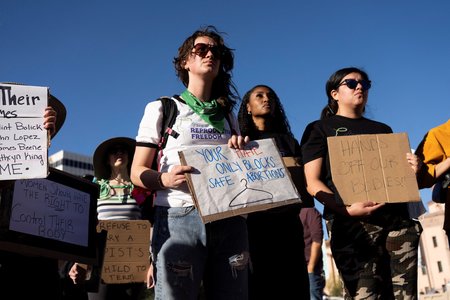
Full Episode: Washington Week with The Atlantic full episode, 4/12/24

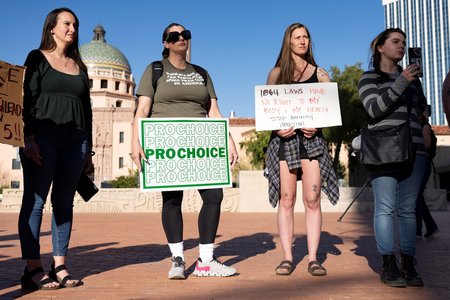
Clip: Democrats seize opportunity to make gains after Arizona abortion decision

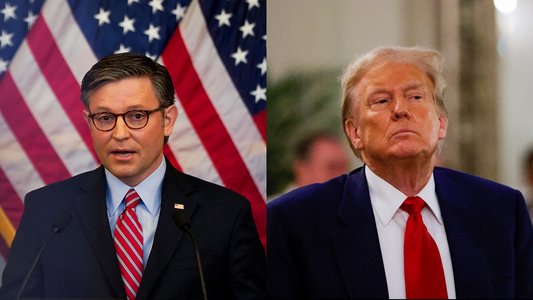
Clip: Johnson visits Mar-a-Lago to shore up support from Trump amid uncertain speakership
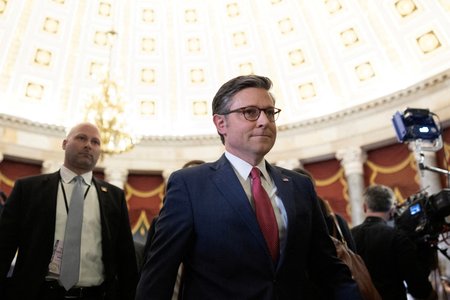
Preview: Coming Up on Washington Week with The Atlantic

© 1996 - 2024 WETA. All Rights Reserved.
PBS is a 501(c)(3) not-for-profit organization
